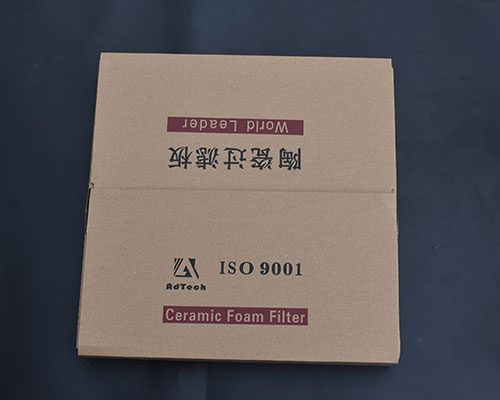In the 1980s, foam ceramic filters for metal foundry technology were quickly and widely accepted by the market. It is used for a wide range of high-quality aluminum products, including rigid packaging materials, lithographic printing sheets, aerospace products, such as plates, plates, forgings, and extrusions. The ceramic foam filter is a combination of excellent strength, thermal properties and resistance to attack from molten aluminum.
For anyone familiar with refractory materials, the use of alumina ceramic foam filters seems to be an obvious choice for molten aluminum filtration. Alumina is relatively chemically inert in molten aluminum, and it is a common alloy, including those containing magnesium. It is also widely used as a particulate material in refractory materials.
The foam ceramic filters used in aluminum metal foundry were developed in the early 1970s, and the technology was first commercially applied in 1974, it used to produce rolled ingots for the manufacture of plates. Ceramic foam filters are disposable filters used for single casting.
The ceramic foam filter size ranges from 4 to 28 holes per centimeter (10 to 70 holes per linear inch), and the corresponding pore size is approximately 0.036 to 0.26 cm. Ceramic foam filters are usually made in square sizes, from 22.86 cm × 22.86 cm × 5.08 cm (9 inches × 9 inches × 2 inches) to 66.04 cm × 66.04 cm × 5.08 cm (26 inches × 26 inches × 2 inches).
Filter efficiency is related to filter cell size. By carefully controlling cell size within the filter, a more consistent filtration performance can be achieved. Typically, removal efficiency increases as filter cell size and the metal velocity in the filter decrease. AdTech offers Alumina Ceramic Foam Filters sizes: 7″, 9″, 12″, 15″, 17″, 20″, 23″, and 26″. We offer the whole range of porosities from PPI 10 up to PPI 60 (PPI = pores per inch). Custom-made cut-to-size filters are also possible.

